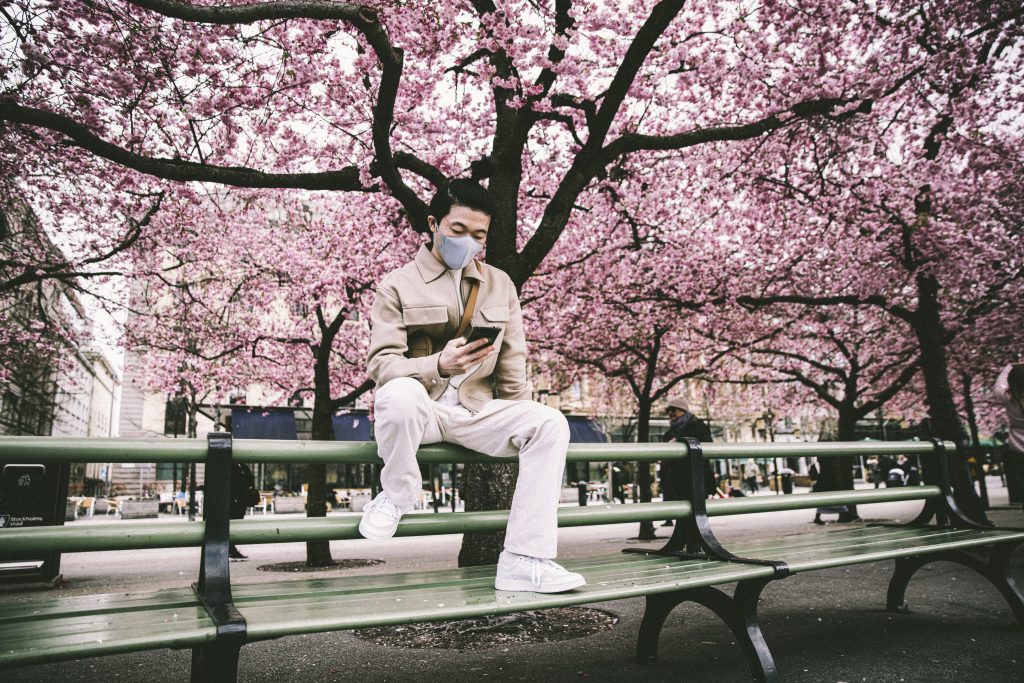
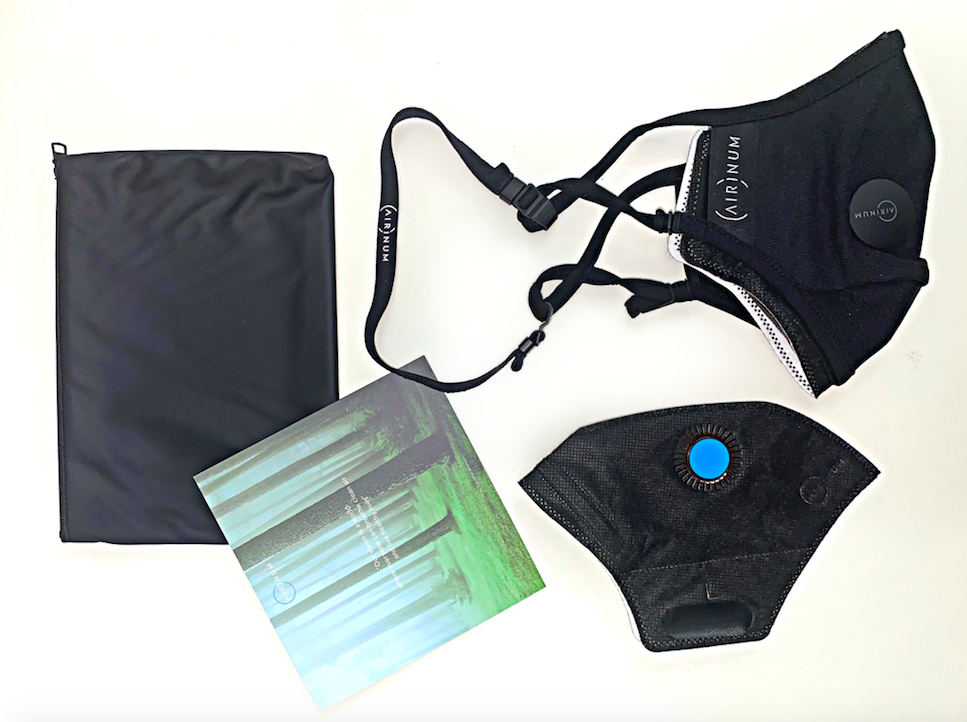
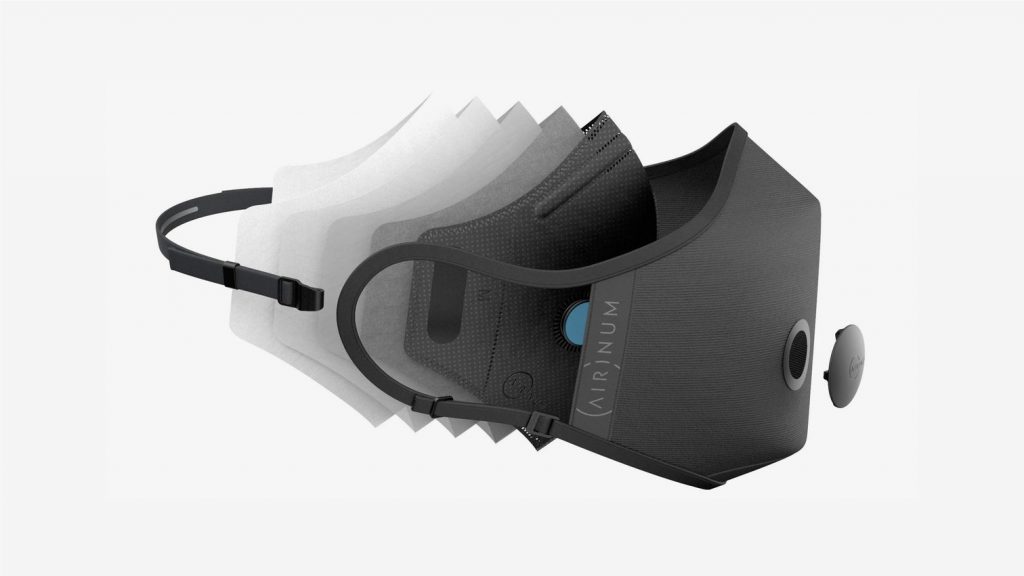
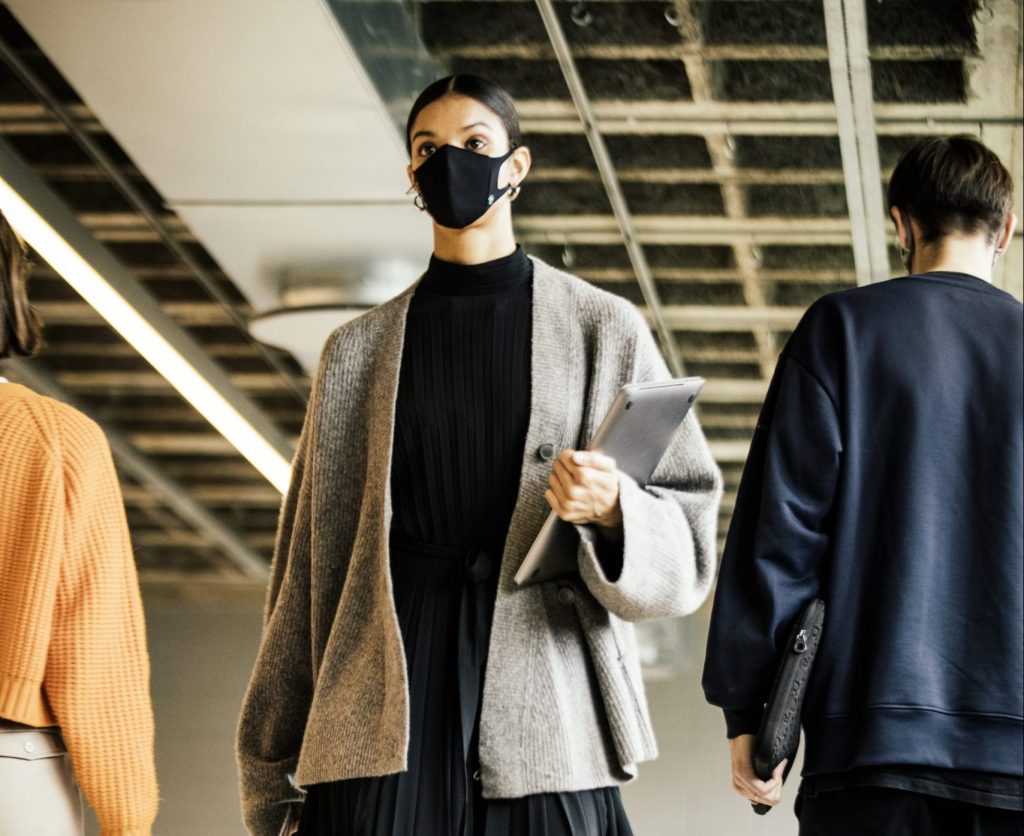
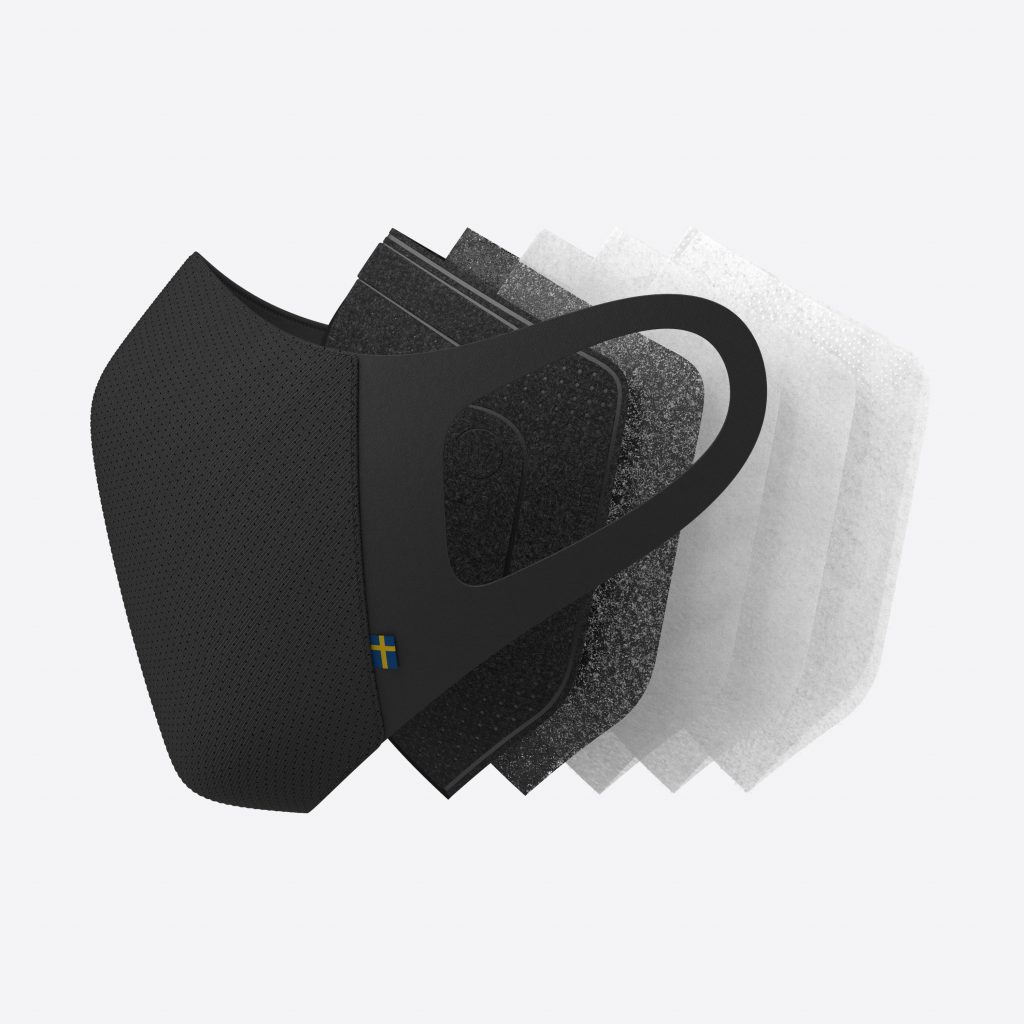





Carla Chahrour Dubai
Face masks hold a peculiar place in the arsenal of measures adopted to prevent the spread of COVID-19. In the midst of frequently changing government regulations, new variants and altering transmission and vaccination rates, face masks — the mouth-and-nose-covering kind, which have been a global phenomenon long before the emergence of COVID-19 — have somehow transformed from an unsettling iteration of fear to a must-have accessory for the conscious
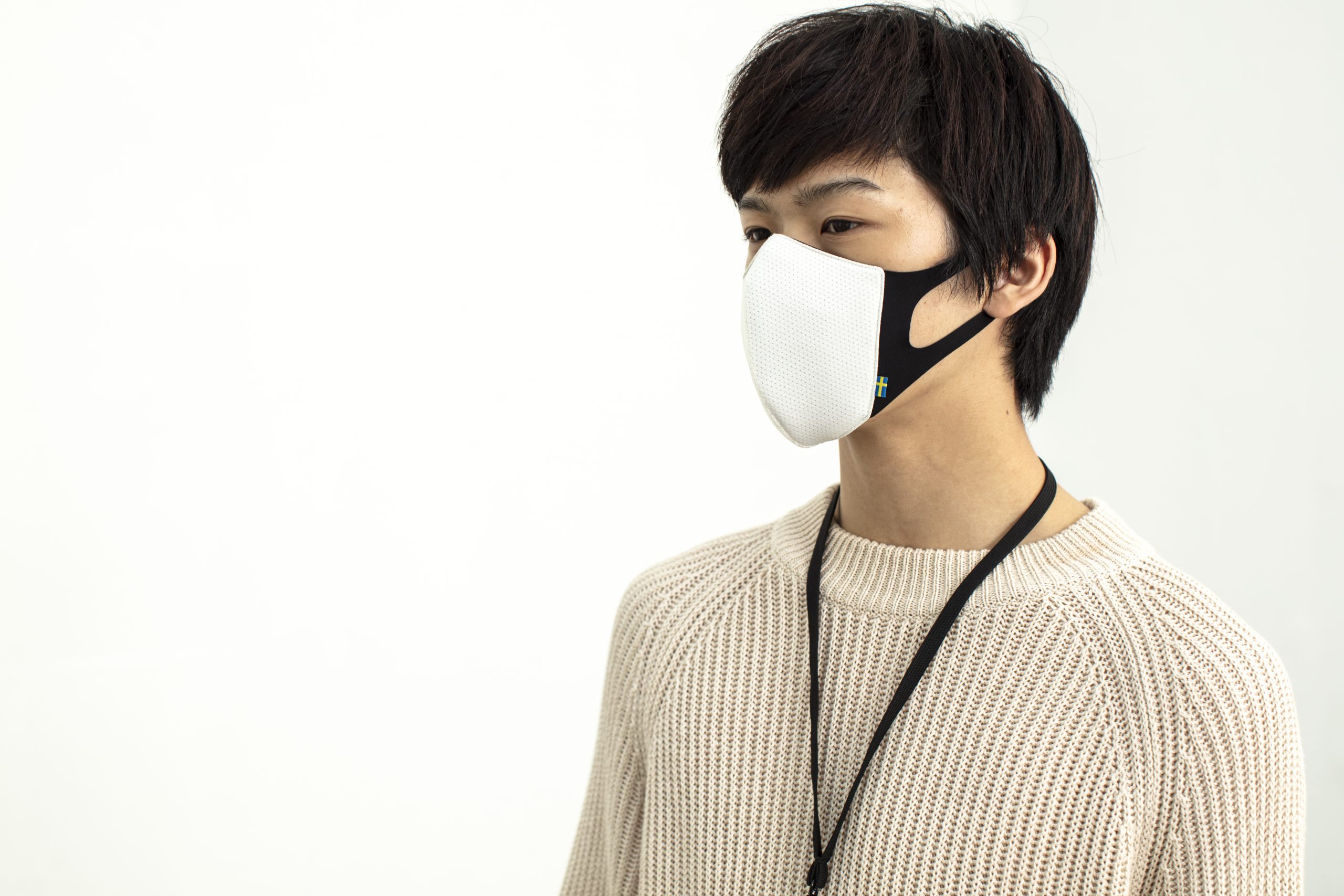 The Lite Air Mask. (Airinum)
The Lite Air Mask. (Airinum)As the general public have become more aware of the benefits of face masks, with an increased motivation to wear them, which was buoyed in recent years by frequent media attention and access to air quality information, companies have capitalized on this concept and started to produce face masks designed to protect the wearer not only from COVID-19, but also from other airborne pollutants, which pose a major health problem.
Airinum, a health tech company launched in 2015 by a group of Swedish entrepreneurs, have created sustainable masks that protect the public not only from the imminent threat from health-related effects of air pollution, including COVID-19 infection, but also against the adverse effects of issues on the environment that could far exceed those of the virus over the long-term: Plastic pollution.
Each year, more than 4 million people die because of outdoor air pollution, according to the World Health Organization. Despite the vital importance of using face masks to avoid the adverse effects of air pollution, a significant volume of these masks are disposable and are usually produced from plastic and will pose severe challenges to humanity in the present and future.
In an exclusive interview with Arab News Japan, Melissa Timms, Media Relations Manager at Arinum, explained the mission behind the company and the factors that differentiates their masks — and brand — from others in the market.
“Our mission is to create innovative products that combat the health effects of climate change and share knowledge that inspires a brighter future. That’s why Airinum not only provides people with world-leading protective equipment but also often does collaborations with brands such as Marine Serre, Human Made and UNDERCOVER — to help raise awareness and share knowledge about climate change,” Timms said.
Founded with the belief that clean air should be something available to everyone, Airinum set out to create the world’s most advanced air masks through the use of world-class filter technology to engineer masks tailored for the end user. The belief stems from the company’s mission to beat climate change’s impact on human health by providing health accessories that allow people to take measures to protect themselves.
“Airinum always works with a customer-centric Product Development methodology, similar to the ‘design-thinking process.’ The first question to answer is always if the product we’re about to make is a ‘neccessory,’ that is Airinum for accessory and necessity,” Timms said.
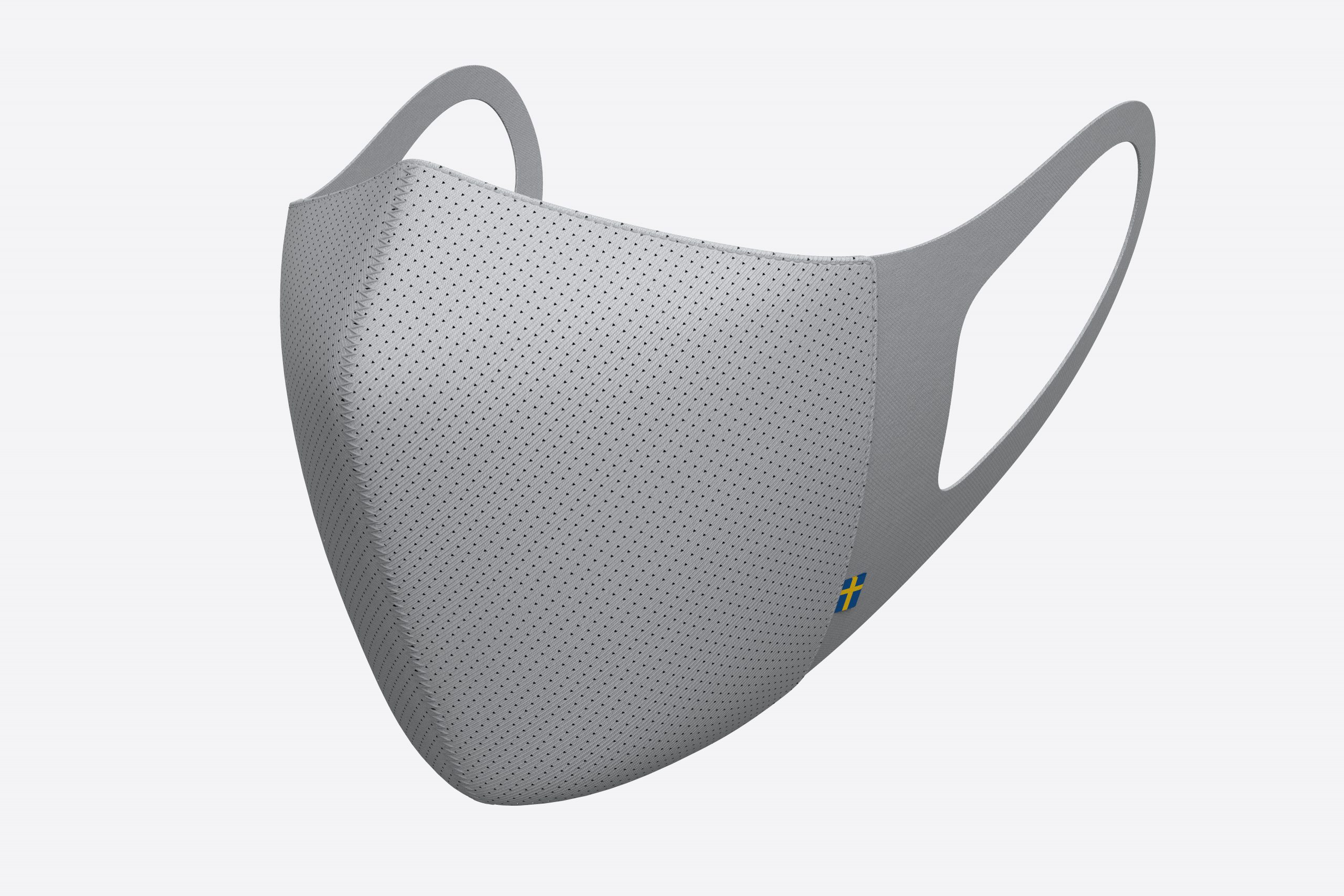 The Lite Air Mask. (Airinum)
The Lite Air Mask. (Airinum)“Airinum offers two of the most advanced specialized air masks on the market today: The Urban Air Mask 2.0 and the Lite Air Mask. Both of these masks offer the same protection as ‘the gold standard of air masks’ without compromising your commitment to sustainability. We call these masks ‘Urban Health Necessories’ — good for you, and the planet,” Timms added.
In a detailed breakdown of the technology and filter material of the Airinum Urban Air Mask 2.0, Timms said that five different layers are used in the filter, each of which have a different density to filter particles of different sizes. The multi-layer filter technology is tested at the RISE R&D center in Sweden, one of the world’s most advanced filter laboratories, and consists of the following layers: An outside PP layer that includes an exterior filter wrapping in a durable finish, an Active Carbon Layer that filters gasses and reduces odor, two electro-charged layers, one that filters larger PM10, pollen, and other allergens, and another that filters smaller PM2.5, dust and bacteria, as well as an interior filter that has an ultra-smooth and skin-friendly finish.
Additionally, Airinum masks are treated with “Polygiene ViralOff®” antimicrobial textile treatment technology that can successfully kill 99 percent of COVID-19 particles from textile surfaces within two hours. Since the masks are treated with Polygiene, they undergo much fewer washes than other fabric-equipped masks, which contributes to the sustainable aspect of the product.
Airinum masks are reusable and thus offer a promising way to overcome environmental challenges faced due to the production and use of disposable medical face masks, which are usually produced from plastic.
Other sustainable elements of the mask include the extensive durability of the filters, which are protected by the mask skin and last significantly longer periods than disposable surgical or industrial masks. The development of washable face masks with high safety features helps to reduce further growth of the existing massive pressure on disposable items.
The real-life effectiveness of masks worn to protect people from air pollution have highly efficient particle filtering material and adequate facial fit. Facial fit is a significant factor that contributes to the overall protection provided by the mask as filtration efficiency can be negatively impacted when worn due to inadequate fit to the face. If the mask cloth is loose, the fit would not be sufficient to ensure maximal performance of the mask. For this reason, the design Airinum masks are designed with a 3-D constructed nose-foam that fits the formation of varying faces by providing a custom and comfortable fit. This also reduces the pressure placed on the ears, which keeps the mask close at all times and ensures that the mask does not fog up glasses, according to Timms.
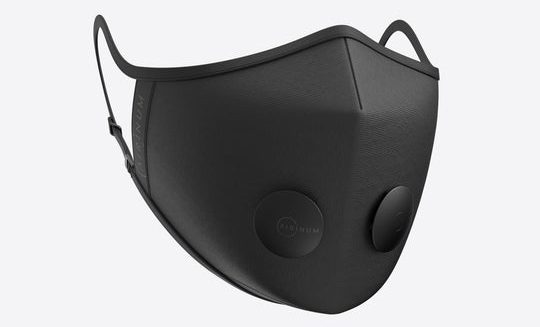
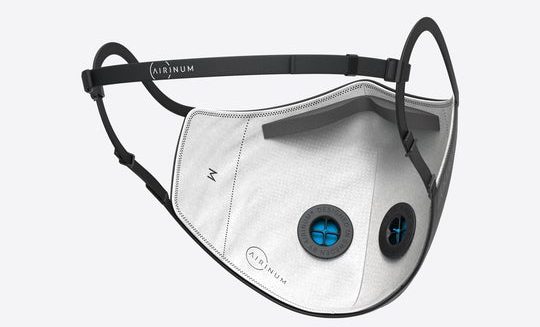
Other important design elements of the Urban Air Mask 2.0 include “the Exhalation Valve Stoppers, which was developed for the Airinum customers to choose between a locked ventilation system or not. The stoppers we suggest to use in public places to make sure the exhaled air stays inside the mask during times like these with a pandemic. The regular valve caps can be used in less crowded spaces to unlock the full technology and comfort of getting the exhaled air out of the mask so it gets less moist inside,” Timms said.
As awareness of air quality, pollution and environmental degradation grew as a growing topic of conversation, masks became so common that celebrities began to post selfies wearing them on social media.
While many brands sensed the opportunity and rose to meet the occasion with the production of designer face masks, Airinum chose to specifically choose collaborators and people of influence who share the same vision as that of the brand. Celebrities seen wearing Airinum masks include Pharrell Williams, Kid Cudi and Gwyneth Paltrow, who gained considerable attention by organically posting pictures of themselves wearing the mask on their social media channels.
“We’ve been to Paris fashion week with brands like Marine Serre and together with world-famous climate scientists like Heïdi Sevestre, we together help raise awareness and knowledge about climate change. We did not enter the mask business to capitalize on a pandemic, we were here long before it started to protect people and the planet from the impact of climate change, a real problem with real challenges for many years ahead. That’s why customers all across the world love not only our products but also the brand Airinum,” Timms said.
“Our goal is, together with our collaborators, to reach and educate as many people as we can about the consequences of climate change. Each of Airinum’s collaborative designs intends to raise awareness about climate change and inspire more people to join the movement towards a cleaner, healthier tomorrow. In partnership with Milkywire, a Swedish platform promoting the UN Sustainable Development Goals by supporting locally rooted nonprofits, Airinum donates part of the revenue from all our collaborations via The Airinum Fund,” Timms added.
Airinum’s goal extends beyond merely producing and selling reusable masks and instead delves into actively influencing public awareness about the impact of global warming on health. While such conversations may not elicit the multifaceted solutions to climate change, which would require countries to cut emissions of carbon dioxide and other long-lived greenhouse gasses, Airinum illustrates that tools can be made available to reduce the impact of air pollution to allow people to protect themselves in the short-term, and the growing public interest about the topic showcases a unified, common goal to improve public health that can entice successful climate change action.
“That’s why we use The Airinum Fund to give back to the planet and while doing so, connect with other people, organizations, and brands that can help share these important stories about the climate crisis. When more people have the knowledge, together we can put more pressure on governments and policymakers.” Timms said.
In 2022 and beyond, Airinum plans to remain focused on fostering their knowledge of climate change and public health to create masks that enable people in all contexts to be free from air pollution, allergies and airborne diseases. Dedicated to advancing the brand’s mission to beat climate change’s impact on human health, Airinum will be broadening the scope of their future products by producing “health necessories” that they consider the world needs. The first drop from this extended product range will be released on the website on Jan. 25.
In doing so, the brand not only widens the scope of the conversation regarding the detrimental effects of climate change, but also draws attention to air pollutants, greenhouse gasses, and health as a combined problem in the perspective that every new “health necessory” released will act as a harbinger of the climate crisis.